Retirees Honored at June Board Meeting
The Board of Trustees honored the 2019-2020 YCCD Retirees at the June 2020 Virtual Regular Board Meeting. The 2019-2020 Retirees represented 210 years of service at YCCD. The presentation and retiree resolutions can be viewed here.
District Services
William Heidbreder, Telecommunications/Multimedia Specialist — 20 years of service
Terry Brownfield, Instructional Network Specialist — 20 years of service
Donald Goodman, Building Maintenance Technician — 29 years of service
Patrick O’Bryan, Lead Custodian — 21 years of service
Yuba College
Robert Mathews, Fine Arts Faculty — 20 years of service
David Ray, Applied Science Faculty — 10 years of service
Jenine Tanabe, Biology Faculty — 25 years of service
Barbara Sluder, Administrative Secretary II – 6 years of service
Claudette Michel, Executive Secretary – 29 years of service
Woodland Community College
Mickie Main, Business Administration Faculty, LCC — 30 years of service
YCCD Welcomes New Administrators
The Yuba Community College District welcomes the following new Administrators:
Vice Chancellor Education and Planning
The Yuba Community College District Board of Trustees approved the employment  of the Vice Chancellor of Education and Planning, Dr. Sonja Lolland, at the June 2020 Regular Board meeting. Dr. Lolland has served as the Interim Vice Chancellor of Education and Planning since July 2019. Dr. Lolland previously served as the Vice President of Academic Affairs at Hartnell College, the Vice President of Academics and Student Services at Yuba College, and Dean of Business and Technology at Sierra College.
of the Vice Chancellor of Education and Planning, Dr. Sonja Lolland, at the June 2020 Regular Board meeting. Dr. Lolland has served as the Interim Vice Chancellor of Education and Planning since July 2019. Dr. Lolland previously served as the Vice President of Academic Affairs at Hartnell College, the Vice President of Academics and Student Services at Yuba College, and Dean of Business and Technology at Sierra College.
Dr. Lolland has extensive experience in the private business sector serving in the finance industry and holds memberships in many professional organizations. Her research interests include institutional practices and their impact on student retention and success; assessment and program improvement; teaching methods to maximize the effectiveness of online learning and academic persistence; assessing student learning using a capstone course; and educational preparation for the labor market.
Dr. Lolland received a Bachelor of Arts in Economics from the University of California, Davis; a Master of Business Administration from CSU Sacramento; and a Doctor of Education in Educational Leadership from the University of California, Davis.
Vice Chancellor Administrative Services
The Yuba Community College District Board of Trustees approved the employment  of the Vice Chancellor of Administrative Services, Kuldeep Kaur, at the March 2020 Regular Board meeting. Ms. Kaur most recently served as the Vice President, Administrative Services, at American River College where she served as the chief financial advisor to the college President and leadership team to assure resource allocations were consistent with college planning. No stranger to the Yuba Community College District, Ms. Kaur served as the Director of Fiscal Services and subsequently as the Chief Business Officer from 2009 to 2012 where she oversaw YCCD business and financial affairs, facilities planning, risk management, and maintenance and operations.
of the Vice Chancellor of Administrative Services, Kuldeep Kaur, at the March 2020 Regular Board meeting. Ms. Kaur most recently served as the Vice President, Administrative Services, at American River College where she served as the chief financial advisor to the college President and leadership team to assure resource allocations were consistent with college planning. No stranger to the Yuba Community College District, Ms. Kaur served as the Director of Fiscal Services and subsequently as the Chief Business Officer from 2009 to 2012 where she oversaw YCCD business and financial affairs, facilities planning, risk management, and maintenance and operations.
Prior to her service at YCCD, Ms. Kaur worked in the California Community College Chancellor’s Office as a Specialist in Fiscal Planning and Administration, at the Los Rios Community College District as a Fiscal Services Accounting Specialist, Accountant, and Account Clerk III. Ms. Kaur has served on the Association of California Community College Administrators (ACCCA) Board for four years, as a member of the ACCCA Finance Committee as Chair and the Policies/Procedures Committee.
Ms. Kaur holds a Bachelor of Accounting from the University of Phoenix and a Master of Business Administration from National University.
YCCD Welcomes New Yuba College President
 The Yuba Community College District welcomes Dr. Tawny Dotson as the new Yuba College President. Dr. Dotson will assume her new position on July 13, 2020. Chancellor Douglas Houston recommended the employment of Dr. Dotson to the Governing Board at the June 11, 2020 Regular Board meeting.
The Yuba Community College District welcomes Dr. Tawny Dotson as the new Yuba College President. Dr. Dotson will assume her new position on July 13, 2020. Chancellor Douglas Houston recommended the employment of Dr. Dotson to the Governing Board at the June 11, 2020 Regular Board meeting.
Dr. Dotson currently serves as the Interim Vice President for Instruction and Executive Director of the Foundation at Clover Park Technical College (CPTC) in Pierce County, Washington. CPTC serves more than 6,500 students annually in seven schools, 44 program areas, 496 employees, two campuses, two satellite locations, and a $36 million state operating budget. In addition, Dr. Dotson currently oversees an additional endowment of $1.7 million and a 16-member Board of Directors of the Foundation.
Dr. Dotson has a distinguished military career, starting as an active-duty Air Force Officer. She has been stationed at Beale, Travis, MacDill, and McChord (now Joint Base Lewis-McChord) Air Force Bases, in addition to Camp Murray. Dr. Dotson has taught in Marketing, Public Speaking and Photography in addition to College Success as an adult, guest lecturer, and continuing education instructor. She serves on the Board for the Boys and Girls Clubs of South Puget Sound, Assistant Governor for Rotary District 5020, and previously Kiwanis.
As a first-generation college student, Dr. Dotson received her Bachelor’s Degree in Communications from Washington State University; took additional courses at Linn-Benton Community College and Sacramento State; earned a Master of Arts in Journalism and Strategic Community from the University of Missouri in Columbia; and a Doctorate in Education in Community College Leadership from Oregon State University in Corvallis.
Supreme Court Ruling on DACA
The U.S. Supreme Court recently issued its opinion on the three Deferred Action for Childhood Arrivals (DACA) cases that were consolidated and argued in front of the justices last year (Regents of the University of California v. Department of Homeland Security, Batalla Vidal v. Nielsen, and NAACP v. Trump). The justices ruled the Trump Administration failed to give an adequate justification for ending the DACA program, keeping the program alive. The Trump Administration announced the rescission of the DACA program on September 5, 2017 and officially ended the program on March 5, 2018. The decision was subsequently challenged in several courts throughout the nation.
The program was instituted by the Obama Administration in 2012 to provide protection from deportation and work permits for eligible immigrants who came to the United States as children without documentation, also known as “Dreamers.” President Trump has signaled that he intends to continue to sunset DACA until and unless Congress takes the legislative action that President Obama had called for in the first place.
California Community College Lawsuit Update
On May 11, 2020, the California Community Colleges filed a lawsuit in federal court against the U.S. Department of Education for its eligibility interpretation of the CARES student relief funds. The lawsuit filed against the Education Secretary Betsy DeVos, asked the U.S. District Court of the Northern District of California, San Francisco, to declare the Department of Education’s eligibility requirements for emergency grants to students under the CARES Act unlawful and unconstitutional and to halt their implementation.
A Federal District Court judge has ruled regarding the U.S. Department of Education’s interpretation of the CARES Act and which students are ineligible for federal relief funds. The ruling issued a preliminary injunction that prevents the U.S. Department of Education from imposing any student eligibility requirement upon the distribution of emergency relief assistance to students under the CARES Act in response to the COIVD-19 pandemic. The U.S. Department of Education has indicated that it will appeal.
State Budget Update
On June 30, 2020, Governor Newsom signed the 2020 Budget Act. In total, the 2020-21 budget reflects state expenditures of $202 billion, including $134 billion in General Fund expenditures. The Budget Act includes components of the Governor’s May Revision and a different plan adopted by the Legislature on June 15 and is markedly different from the budget initially proposed by the Governor in January. While the 2020-21 budget prevents immediate cuts to CCC apportionments and categoricals, it defers $1.5 billion in CCC funding to 2021-22. Of the $1.5 billion deferral, up to $791 million would be rescinded if Congress approves a fourth stimulus package with sufficient funding by October 15, 2020.
The Budget Act includes $16 million in ongoing policy adjustments compared with revised 2019-20 expenditure levels. In addition, the budget contains a net reduction of $1.1 billion in one-time adjustments for CCC.
2019-20 Revised Budget $8,402.4
TECHNICAL ADJUSTMENTS
Remove one-time spending / add back one-time reductions $314.9
Student Centered Funding Formula base adjustments $39.6
Other technical adjustments $-25.2
Subtotal Technical Adjustments $329.3
POLICY ADJUSTMENTS
Ongoing
Continue legal services support for immigrant students, faculty, and staff $10.0
Adjust Student Success Completion Grant funding for recipients $9.1
Fund Dreamer Resource Liaisons and related support services $5.8
Reduce California Online Community College (Calbright College) funding $-5.0
Adjust California College Promise for recipients $-3.8
Subtotal Ongoing Policy $16.1
One-Time
Defer apportionment payments from 2020-21 to 2021-22 -$1,453.2
Defer apportionment payments from 2019-20 to 2020-21 $330.1
Provide COVID-19 Response Block Grant $33.0
Subtotal One-Time Policy -$1,090.1
TOTAL CHANGES -$744.7
2020-21 Enacted Budget $7,657.7
Other Actions
COVID-19 Response Block Grant
The budget includes one-time Proposition 98 funding of $66.3 million (with about half allocated to 2019-20 and half to 2020-21) and $53.4 million from the federal Coronavirus Relief Fund for a block grant to be allocated based on enrollment. Districts may use these funds for activities that directly support student learning and mitigate learning loss related to the COVID-19 pandemic.
Temporary Reduction in Pension Costs
The Budget Act incorporates the Governor’s May Revision proposal to redirect funds previously designated for a long-term buydown of pension liabilities, and instead uses them to reduce local school employer pension contributions in 2020-21 and 2021-22 by about 2% in each year.
New Requirements—Student Equity and Achievement Program.
Trailer bill language requires that community college districts, as a condition of receiving Student Equity and Achievement Program funds, support or establish on-campus food pantries or regular food distribution programs.
New Requirements—Classified Employees.
Trailer bill language also expresses the Legislature’s intent that districts maintain all classified employees in the 2020-21 fiscal year and prohibits districts from laying off any permanent or probationary employee with a classification in nutrition, transportation, or custodial services during this period. The language does not prohibit a community college district from terminating a classified employee for good cause.
Short-Term Workforce Training Programs.
Trailer bill language addressing the Strong Workforce Program encourages districts to expedite the development of short-term career technical education courses to address the impacts of the COVID-19 pandemic. It also expresses the Legislature’s intent that, where possible, districts use short-term noncredit programs to respond to employers’ workforce training needs and provide those who complete these programs the ability to transition to credit or noncredit courses and programs.
Fifty Percent Law.
Budget trailer bill language exempts COVID-19-related expenditures from the Fifty Percent Law through June 30, 2021.
Student Aid.
In addition to the CCC changes noted above, the budget includes financial aid changes affecting CCC students. Under the California Student Aid Commission, the budget redirects $15 million from the Dreamer Incentive Grant program for one year (2020-21) to provide emergency financial aid for undocumented students at UC, CSU, and CCC. Of this amount, $11 million is designated for CCC students. In addition, the budget fully funds the Cal Grant program and provides $250,000 for a student loan working group to be convened by the commission.
Consolidation Proposal Deferred.
The budget defers to a future date consideration of the Governor’s January Budget Proposal to create a unified CCC System Support Program. This program would have consolidated multiple, disparate funding streams for system support and accountability that are currently a part of various categorical program set asides and statewide programs.
Capital Outlay
The Budget Act includes $223.1 million in capital outlay funding from Proposition 51, approved by voters in 2016. The funding is to support the construction phase for 15 continuing projects ($194.7 million) and the preliminary plans and working drawings phases for 25 new projects ($28.4 million). The Woodland Community College Performing Arts Building and the Yuba College Fire Alarm System Upgrade are included in the Capital Outlay projects.
American’s Support Community Colleges
Varying Degrees by New America
A report recently published by New America which seeks to understand how Americans view higher education was published in February 2020 before the full force of the pandemic hit the US provided an important baseline to help measure how perceptions change over the course of this public health and economic crisis.
The report surveyed 1,512 Americans ages 18 and older to better understand their perceptions of education after high school. Top findings of the report include that Americans believe that education beyond high school creates more opportunities, is worth the investment, and promotes social mobility. Although Americans believe in the value proposition of education beyond high school, there is also a belief that higher education needs to change and that publicly available data on low graduation rates, high dropout rates, low earnings, and high student loan default rates are important indicators of quality in education. Additionally, the report states that more than four in five Americans (83 percent) agree that community colleges contribute to a strong workforce, and 81 percent believe public four-year colleges and universities do so as well.
Download the full report at the New American website here.
Reimagining Community College by Opportunity American
A new report by a group of educators and education policy thinkers outlines a strategy for community colleges – urging them to step up in the wake of the COVID crisis as the nation’s premier provider of workforce education.
The report makes a number of recommendations for how two-year institutions can take on the role of upskilling Americans for the recovery to follow the COVID-19 pandemic. The report included 11 recommendations including:
- Focusing on trends in the college’s local economy;
- Offering more courses at times convenient for adult learners, as well as more online instruction;
- Creating policies that align community college funding with job placement rates and wages;
- Creating and maintaining partnerships with local employers who will hire students;
- Ensuring students learn both foundational skills like problem solving and job-focused skills like teamwork;
- Funding efforts to increase work-based learning opportunities;
- Building bridges between credit and noncredit programs;
- Improving stackability of certificates into traditional programs;
- Providing supports for students seeking jobs, like career maps and labor market information;
- Cooperation with local workforce boards to create a single system for the public workforce; and
- Rethinking funding methods.
The full Opportunity American report is available here.
Legislative Update
Bills of Interest
AB 694 (Irwin) This bill was amended to move the bond to the March 2022 ballot from the November 2020 ballot. The bill would enact the Veterans Housing and Homeless Prevention Bond Act of 2022 to authorize the issuance of bonds in an amount not to exceed $600,000,000 to provide additional funding for the VHHPA. The bill would provide for the handling and disposition of the funds in the same manner as the 2014 bond act.
AB 1930 (Medina) This bill passed out of Assembly Appropriations and will go to the Assembly floor. The bill would require the Trustees of the California State University (CSU), and requests the Regents of the University of California (UC), before adding any changes in student eligibility policy that affects students systemwide of that segment to engage in a multi-step process prior to make said change.
AB 2019 (Holden) This bill passed Assembly Higher Education and will go to Assembly Appropriations. The bill would authorize county offices of education to enter into CCAP partnerships with the governing boards of community college districts in accordance with these provisions.
AB 2030 (Rubio, Blanca) This bill passed Assembly Higher Education and will go to Assembly Appropriations. The bill would change, in accordance with a prescribed formula, the maximum Cal Grant award for tuition for a new recipient attending an independent institution of higher education, commencing with the 2021–22 award year. This bill would provide that the award amount for a student attending an independent institution of higher education may instead be determined in the annual Budget Act if the independent institutions of higher education, as a group, do not accept the specified number of transfer students who have been given associate degree for transfer commitments.
AB 2190 (Medina) This bill passed out of Assembly Higher Education and will go to Assembly Appropriations. The bill would eliminate the prohibition against a student member of the Board of Governors voting during the student member’s first year on the board.
AB 2341 (McCarty) This bill passed the Assembly Higher Education Committee and will go to Assembly Appropriations. The bill would authorize the Office of the Chancellor of the California Community Colleges to establish a program, named the Rising Scholars Network, to enter into agreements with up to 50 community colleges to provide additional funds for services in support of postsecondary education for justice-involved students.
AB 2282 (McCarty) This bill passed out of Assembly Appropriations with amendments to allow the use of email instead of text. The bill will go to the Assembly floor. It would require the Board of Governors of the California Community Colleges to establish a CalFresh student outreach text messaging program to provide students who are not enrolled in CalFresh with a link to an internet website with information on applying for CalFresh benefits.
AB 2341 (McCarty) This bill passed out of Assembly Appropriations with amendments to remove general fund references and clarify that only existing funds will be used. The bill will go to the Assembly floor. It would authorize the Office of the Chancellor of the California Community Colleges to establish a program, named the Rising Scholars Network and to enter into agreements with up to 50 community colleges to provide additional funds for services in support of postsecondary education for justice-involved students.
AB 2388 (Berman) This bill passed out of Assembly Higher Education and will go to Assembly Appropriations. The bill would require each campus of the California Community Colleges to establish the position of Basic Needs Coordinator, commencing on or before July 1, 2021.
AB 2884 (Berman) This bill passed out of Assembly Appropriations and will go to the Assembly floor. The bill would expand the acceptable uses of restricted lottery proceeds provided to California Community Colleges to include students’ basic needs. Specifically, the bill expands the definition of “instructional materials” to include housing and food assistance for students.
AB 2972 (Limón) This bill passed out of Assembly Appropriations and will go to the Assembly floor. The bill would require the California Community Colleges and the California State University, and encourage the University of California, to create an systemwide training program for administrators to be completed annually regarding undocumented students, Deferred Action for Childhood Arrivals (DACA) policies, federal and state laws related to immigration generally, and state law relating to exemption from nonresident tuition.
AB 3137 (Voepel) This bill passed out of Assembly Appropriations and will go to the Assembly floor. The bill would require that a student who is a member of the Armed Forces of the United States and is called to duty may withdraw from participation in the California College Promise and resume participation in the program upon the student’s return from duty without losing eligibility for the fee waiver or any other benefit of the program.
AB 3374 (Committee on Higher Education) This bill passed Assembly Appropriations and will go to the Assembly floor. The bill would delete the requirement that the Legislative Analyst’s Office (LAO) submit a final report on the progress of the Basic Skills and Student Outcomes Transformation (BSSOT) grant program, and clarify that full-time or part-time clinical nursing faculty may be employed by a single community college district (CCC) for up to 4 semesters or 6 quarters within any period of 3 consecutive academic years, and would also make clarifying and non-substantive changes.
ACA 5 (Weber) This constitutional amendment passed out of Senate Appropriations and from the Senate floor. The measure will now go to the November ballot. It would overturn Proposition 209 of 1996 which prohibited affirmative action.
SB 956 (Jackson) This bill passed the Senate floor and will go to the Assembly. The bill would request the University of California, through a new or existing research center, to perform a comprehensive assessment of the major tax expenditures and to present a comprehensive, peer-reviewed assessment to the board by July 1, 2022, at a public hearing of the board.
SB 1173 (Durazo) This bill passed the Senate floor and will go to the Assembly. The bill would impose liability on a public employer for violations of the requirements related to providing information on newly hired employees if the violations occur 3 or more times in a 12-month period. In this instance, the employer would be liable for the reasonable expenses of an employee organization incurred in enforcing its rights, including staff time and payments to associated counsel.
SB 1232 (Glazer) This bill passed the Senate floor and will go to the Assembly. The bill would require that specified CalWORKs eligible individuals participating in a full time or part time educational activity at a publicly funded postsecondary educational institution and making satisfactory progress, as specified, receive a standard allowance of $250 to $500 per semester or quarter, which may be provided, in whole or in part, in the form of a book voucher, or reimbursement for verified actual expenses for ancillary services.
Chancellor’s Calendar
July 2020
1 – CCCCO Weekly Webinar
1 – Meetings of the Facilities/Audit and Finance Committees
1 – Meeting of Ad Hoc WCC Facilities Committee
2 – District Holiday
6 – 2nd Interviews for YC VPSS
6 – Meeting with Trustee Teagarden
6 – YCCD Zoom Town Hall\
6 – Meeting with Trustee Ortiz
7 – Chancellor’s Cabinet
7 – CCLC Weekly CEO Webinar
7 – Meeting with Hannover Research regarding Strategic Planning
7 – Orientation meeting with Student Trustee Bravo
7 – Vision for Success Trustee Fellowship meeting with Trustees Alves and Teagarden
8 & 9 – Governing Board Summer Planning Retreat
9 – Regular Meeting of the Governing Board
10 – Campus Closed (Summer Workweek Schedule)
10 – Student Centered Funding Formula Task Force meeting
13 to 17 – Tentative Vacation days
14 – Chancellor’s Cabinet
14 – CCLC Weekly CEO Webinar
16 – Kick-off Speaker for ACCCA’s Great Deans program
20 to 24 – Tentative Vacation days
21 – Chancellor’s Cabinet
21 – CCLC Weekly CEO Webinar
30 – Kick-off Meeting for I.D.E.A ‘Committee’ (recommissioned District EEO Committee)
31 – Last Friday of Summer 4-day workweek

